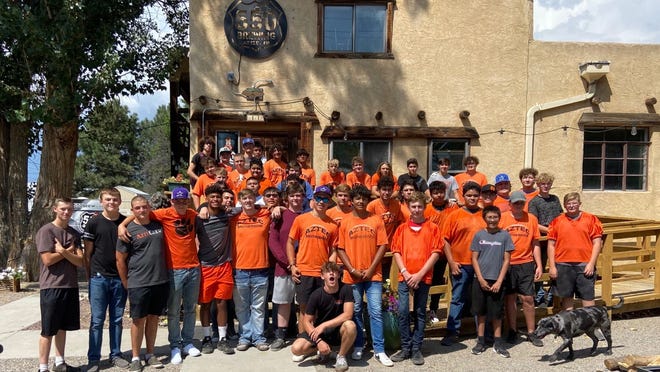Opinion: The time is now to pass the Peace Corps Reauthorization Act

An Improved Peace Corps for the Next Generation: Volunteers About to Return Overseas
The United States is on the verge of sending our most valued treasure — our people — overseas to serve as Peace Corps Volunteers once again. For the past two years, the Peace Corps, like much of the world, has been grounded by COVID-19, with no volunteers currently serving abroad. This is about to change, and as the Peace Corps gets ready to relaunch, it’s my hope, as a Returned Peace Corps Volunteer who served in Ghana (1971–1972) and Burkina Faso (1972–1974), that it does so even better than before.
The good news is that this is now possible. While nearly 7,000 Americans serving in some 60 countries came home in 2020, the 240,000 Americans who have served since the agency’s founding in 1961 didn’t sit still. We organized, drew on the knowledge and experience of the community, and produced a comprehensive set of recommendations for how the Peace Corps could return to the field to meet the needs of a changed world.

Our national community’s voices were organized by our returned volunteer membership organization — the National Peace Corps Association — to ensure that America’s most iconic service agency lives up to President Kennedy’s grand vision of bringing the world together in peace. This vision is more urgent today due to global threats we all face, from the pandemic to climate change, to the retreat of democracy around the world.
Along with fellow Four Corners Returned Peace Corps Volunteers and the 2,285 RPCVs who have served in the Peace Corps from New Mexico, I know firsthand about its importance and the impact we can have. While serving in Bawku, Ghana, the last town on the road to the northeast corner of the country, I taught sciences at the local secondary school. Ghanaian graduates from secondary schools taught by Peace Corps Volunteers have gone on to universities and positions of responsibility as lawyers, doctors, teachers, scientists, military and community leaders, and caring parents throughout the country and abroad.
My second Peace Corps posts was more concrete. As a water-well construction volunteer in remote Sahelian villages of northern Burkina Faso, I worked with villagers to find appropriate sites, dig wide-bore wells, install reinforcing rods along the wall, pour hand-mixed concrete in circular molds, and continue the process from the surface to groundwater. A village well would provide clean water and drastically reduce the time commitment for women and children to walk long distances in search of dubious water supplies.
As we are about to celebrate Peace Corps Week (February 27 – March 5), including the March 1 anniversary of President Kennedy’s 1961 executive order establishing the Peace Corps, volunteers are about to return to overseas service. At least eight countries have met revised health, safety, and security standards for volunteers to return, while more nations are close to meeting those standards. The World Wants Peace Corps Back! All 60 nations that had volunteers prior to the pandemic have indicated they look forward to having volunteers return.
We have also seen Washington take to heart the views of the Peace Corps community. Reforms to programs are being adopted. New ideas about incorporating racial justice and equity into agency activities are being advanced.
Yet more needs to be done. We can all come together by supporting the first step toward completing an overhaul of Peace Corps operations through new authorizing legislation. The Peace Corps Reauthorization Act (H.R. 1456) includes provisions to improve in-service and post-service health care; extend the critical mission of a Sexual Assault Advisory Council; enhance several volunteer financial benefits; expedite applications for volunteers wishing to return to service after COVID brought them home; and raise opportunities and respect for Peace Corps service.
As volunteers return to the field, battling COVID will be a significant part of their work. In October 2021 testimony to the House Foreign Affairs Committee, Acting Director Carol Spahn said: “The Peace Corps is committed to playing a critical role in global COVID-19 response and recovery by returning volunteers to work in partnership with underserved communities around the world.”
Climate change is also a priority. "There's no time to waste" Spahn said in a recent interview. Countries where volunteers serve are feeling some of the most damaging effects of climate change, and Peace Corps will be actively partnering with communities across sectors.
While it has been more than 20 years since Congress reauthorized the original Peace Corps Act, last September Democrats and Republicans in the House Foreign Affairs Committee came together to pass H.R.1456 by a vote of 44 to 4, a truly bipartisan effort. The rest of Congress should follow their lead.
Now is the time for action — as volunteers again prepare for service. Join the Peace Corps community by urging our Congressional Delegates including Representatives Teresa Leger Fernandez, District 3 (northern NM), Melanie Stansbury, District 1 (central NM) and Yvette Herrell, District 2 (southern NM) to pass the Peace Corps Reauthorization Act (H.R. 1456) in the House as soon as possible.
Please also urge Senators Martin Heinrich and Ben Ray Luján to actively join the House in supporting bipartisan passage of this legislation, an important step toward deepening our nation’s commitment to service and our nation’s highest ideals.
Dr. Michael K. O’Neill was a Peace Corps volunteer in Ghana (1971–1972) and in Burkina Faso (1972–1974). He went on to become an NMSU Professor of Agronomy and José Fernández Memorial Chair in Crop Production – Emeritus, at the NMSU Agricultural Science Center at Farmington (1999–2018).